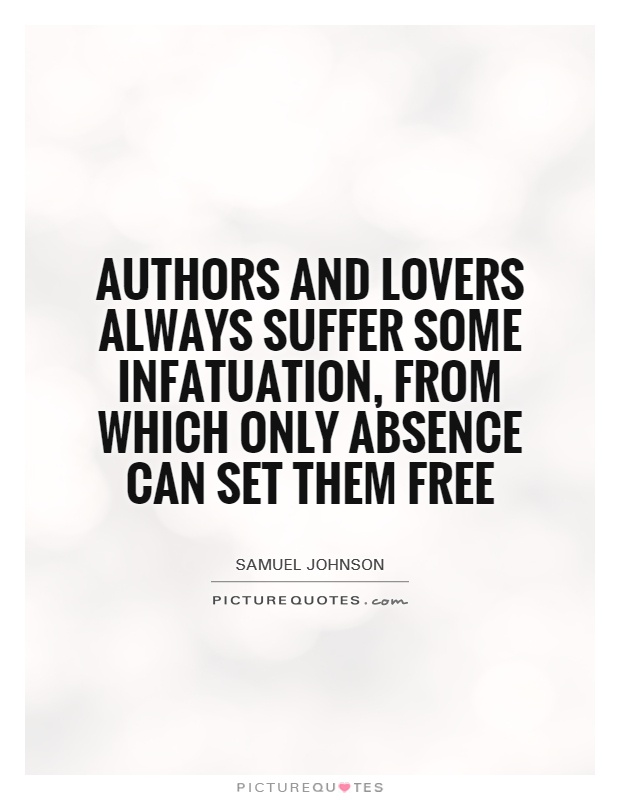Authors and lovers always suffer some infatuation, from which only absence can set them free

Authors and lovers always suffer some infatuation, from which only absence can set them free
Samuel Johnson, the renowned English writer, critic, and lexicographer, was no stranger to the complexities of love and infatuation. Throughout his life, Johnson experienced various forms of infatuation, both in his personal relationships and in his literary pursuits. Johnson's own struggles with love and infatuation can be seen in his writings, where he often explored the themes of longing, desire, and the pain of separation.In his famous work, "The Rambler," Johnson writes, "Authors and lovers always suffer some infatuation, from which only absence can set them free." This statement reflects Johnson's belief that both writers and lovers are prone to becoming infatuated with their subjects, whether it be a person or an idea. Johnson understood that infatuation can cloud one's judgment and lead to irrational behavior, but he also recognized that it is a natural part of the human experience.
Johnson's own infatuations can be seen in his relationships with women, particularly his close friend and confidante Hester Thrale. Thrale was a wealthy widow who provided Johnson with financial support and emotional companionship for many years. Johnson's letters to Thrale reveal his deep affection for her, as well as his struggles with jealousy and possessiveness. Despite their close bond, Johnson and Thrale were never able to fully reconcile their feelings for each other, and their relationship ultimately ended in heartbreak.












 Friendship Quotes
Friendship Quotes Love Quotes
Love Quotes Life Quotes
Life Quotes Funny Quotes
Funny Quotes Motivational Quotes
Motivational Quotes Inspirational Quotes
Inspirational Quotes